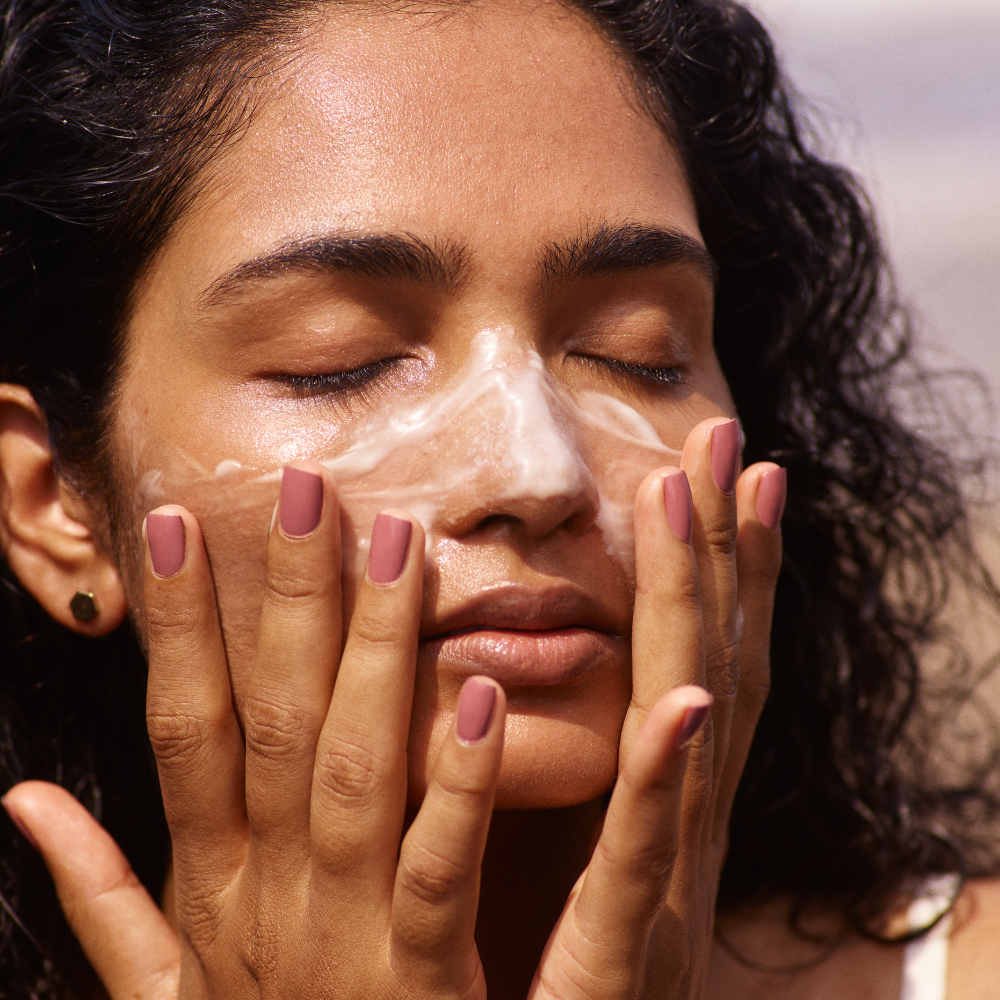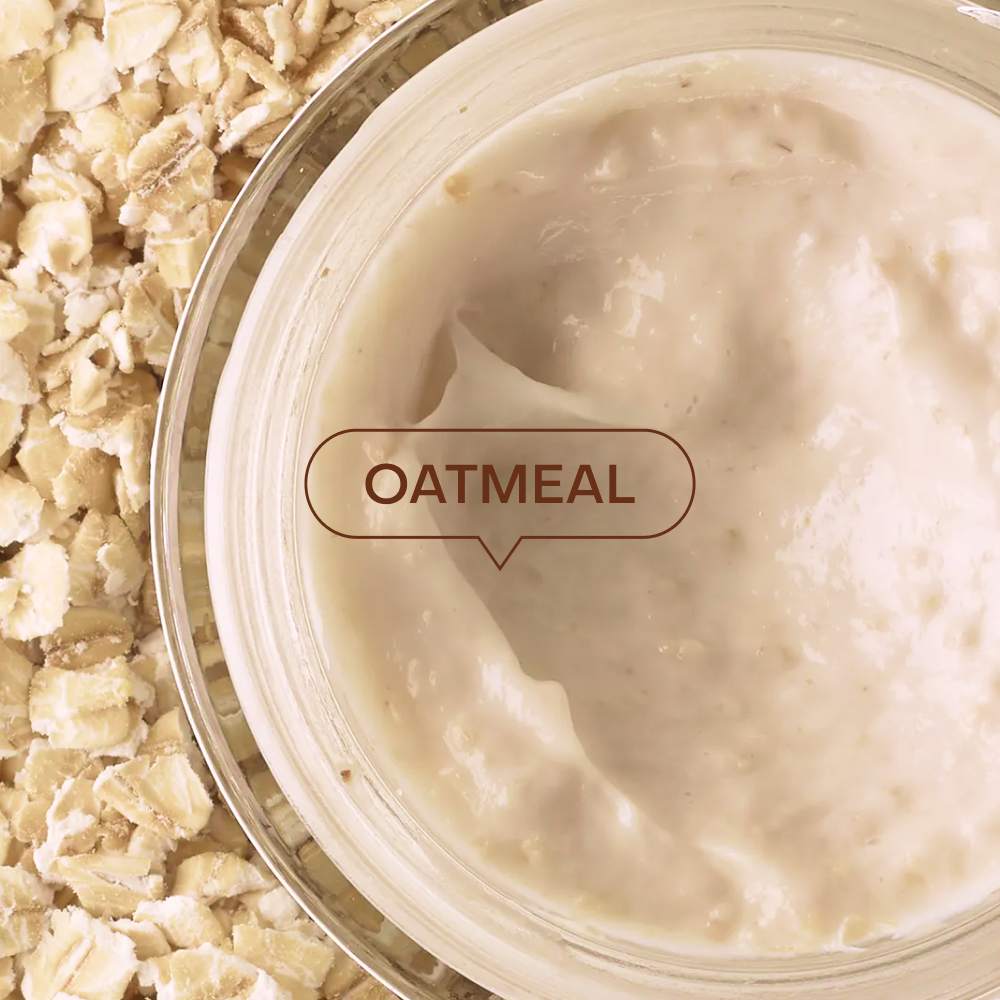
Jello skin. Glass skin. Dolphin skin. However hashtag-friendly we make it, what most of us want is skin that looks glistening, plump and juicy. The good news is that all of this can come in one bottle. The better news is that this bottle will not only make skin look good but will also make it healthier and more fortified. It’s time to get familiar with squalane.
We might be trying to get rid of excess sebum with a whole shelf’s worth of mattifying skincare and makeup, but that sticky, oily substance is key in preserving the moisture in our skin. You need to work with your skin, not against it - and squalane, an active ingredient, can help. It’s a derivative of squalene that is found naturally in our skin, specifically in our sebum, and is our passage to getting bouncy and well-moisturised skin.
After turning thirty, we start to lose the squalene in our skin, and that’s when squalane can come to the rescue. Although it’s an oil, it’s lightweight and doesn’t clog pores. It works on locking in your natural moisture and healing your skin while at it. Dermatologists Dr Ankur Sarin and Dr Jushya Bhatia Sarin of Sarin Skin Solutions break down squalane for us.

Squalene vs squalane
Squalene makes up 10-12 per cent of sebum. Its derivative squalane, which is a hydrogenated form of squalene, is a more stable form of it that is suitable for all types of skin. “Squalane is lighter than squalene and can benefit people with oily skin,” explains Dr Ankur. “Squalene is a lipid (or fat) naturally found in the skin and unstable when used in skincare products”, adds Dr Jushya.
Since squalane is so similar to the natural oil that’s produced in our skin, it absorbs easily and serves as a great alternative. While squalene is highly effective for dry and dehydrated skin, squalane is preferable for oily skin. But, just like excessive natural oils can clog pores and lead to acne, squalane can have similar effects on acne-prone skin, so it must be monitored and used in limited amounts.
Benefits of squalane
Expect hydration, anti-oxidation and collagen boosts, says Dr Ankur. “Squalane is a boon for people with dry skin,” says Dr Jushya. “Its ultra-hydrating and soothing properties make it a popular ingredient for dry and sensitive skin. It also strengthens the skin barrier.”
Squalane in skincare is an adaptogen which adapts to your skin’s concerns and demands, making it perfect for those with easily reactive skin. A disrupted skin barrier can be home to infections and allergies. Since both squalene and squalane are great emollients, they help repair the skin barrier. Squalane also reduces inflammation, working well for those with acne, eczema or psoriasis.
Regular use of this active is also expected to reduce scars and treat damage or pigmentation caused by UV rays. Think of squalane as the cling film that locks in and retains moisture. And, when combined with glycerine and hyaluronic acid, all three work in tandem towards the same goal.
Squalane in skincare
“Squalane adds moisturisation to the skin. And squalane hair oil is great for hair moisturisation,” says Dr Ankur. “It’s a popular skincare ingredient and acts as an emollient—a class of moisturisers. It is commonly present in cold creams and night creams given its intense moisturising properties,” adds Dr Jushya. “Squalene was once derived from the livers of deep-sea sharks. But thanks to conservation efforts, plant-based squalane made from sugarcane and olives (also vegan) is equally popular, even if more expensive.”
Squalane for skin is highly moisturising, making it great to use in cosmetics, too, where it can add a boost of hydration to mattifying products. Lightweight and non-greasy, it’s great to use as a facial oil, facilitating a jello-like texture without making your skin sticky, clogged and heavy. It also plays nice with other actives— especially vitamin C and retinol.
Squalane for the face
“Anyone can use it,” says Dr Ankur. The best way to use squalane is to replace lost moisture immediately after your face wash. You can also end the day with it. But, avoid applying squalane-based products on open wounds. It works wonderfully on those with dry or mature skin. “A daily application of squalane face oil helps relieve dry or inflamed skin. I do not recommend squalane for acne-prone skin because it’s similar to the natural oil that can clog pores and lead to acne—caution should be exercised,” concludes Dr Jushya.







.PNG)
.PNG)
.PNG)
















